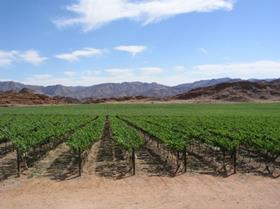
The South African table grape crop is likely to exceed volume of SATI’s third estimate and is likely to end up around 65m cartons.
With the two mid- to late-season regions close to the end of their harvest, it will however be some time before arrivals in foreign destinations come to an end.
The Berg River region, which harvested and packed a record crop of 16.2m cartons, was expected to deliver its last grapes today.
The Hex River Valley has perhaps another two weeks to go. It is expected that, despite a number of seasonal challenges, it will export around 19.5m cartons and may even reach the 20m mark.
Elsewhere the northern regions packed a disappointing crop of 6.1m cartons after a few record breaking years. The Orange River region, at 19.8m cartons, fell just short of 20m cartons.
The Olifants River Region, on 3.32m cartons, has recovered from the woes of the past two years and had its best harvest in three seasons.
A feature of the season so far is that Canada has continued to rise as a marketing region for South African grapes. Shipments to Canada rose by 45 per cent compared with last year and the country is now the third biggest sales region following the European Union and the UK.
With 74 per cent of the crop sold this year in the EU and the UK, it would seem that not enough progress has been made in exploiting the opportunities in the East.
However, this is not the case, because the outbreak of Covid-19 in China curtailed many a good plan. One of them was to do some pilot promotions in three Chinese regions. These plans have been postponed till next year.
Whilst shipments to China were reduced because of the effect of measures to combat the virus, some exporters say that they have been continuing with shipments right through the season. They reported a return to normal trading from the end of February onwards.
The Hex River crop could have been much higher if it was not for unusually heavy mid-season rains. SATI chief executive Willem Bestbier said that the industry was grateful that it got through a tough season fairly well.
“We now hope that these unusual conditions will now disappear and that when the next season starts we will have normal trading and growing conditions again,' he said.



